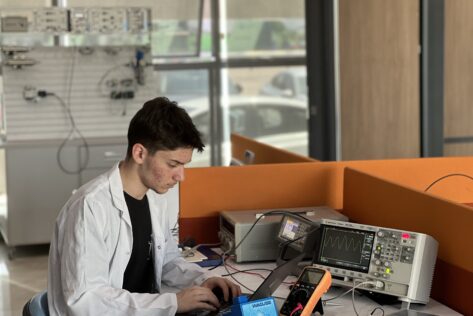heading

The project aims to develop a system that detects water loss using sound signal processing algorithms via a single sensor placed in a commonly used sink area and enables prompt intervention by a responsible staff member. The developed water sound recognition algorithm was tested in different sinks; the experiments demonstrated that it achieved an accuracy rate of 77.3% and could prevent 15.25 liters of water waste in 135 minutes in a single restroom. Additionally, we trained an AI model to classify the sound, and our AI algorithm achieved a classification accuracy of 95%. Using a contactless approach, this system provides a low-cost, fast-deploying, and actionable solution that ensures water conservation and sustainability.
This is how I came up with the idea for this project:A small leak at home made me realize how easily water is wasted unnoticed. Observing similar situations in public places like schools, I developed a sound signal processing-based, AI-powered system to detect water loss through a single system. The project aims to promote scalable, affordable solutions to reduce water waste.

Documentation
SOUND SIGNAL PROCESSING-BASED AND AI-POWERED WATER GUARD SENSOR FOR FAUCETS AND FLUSHES: WAGUSE Explains the purpose of the sound signal processing-based, AI-powered system that detects water loss and how the method goes
